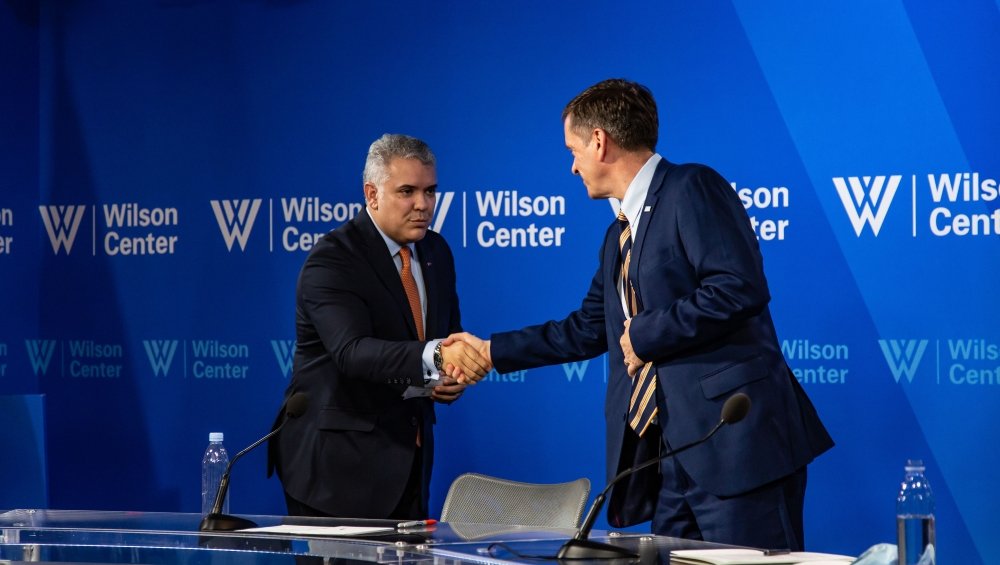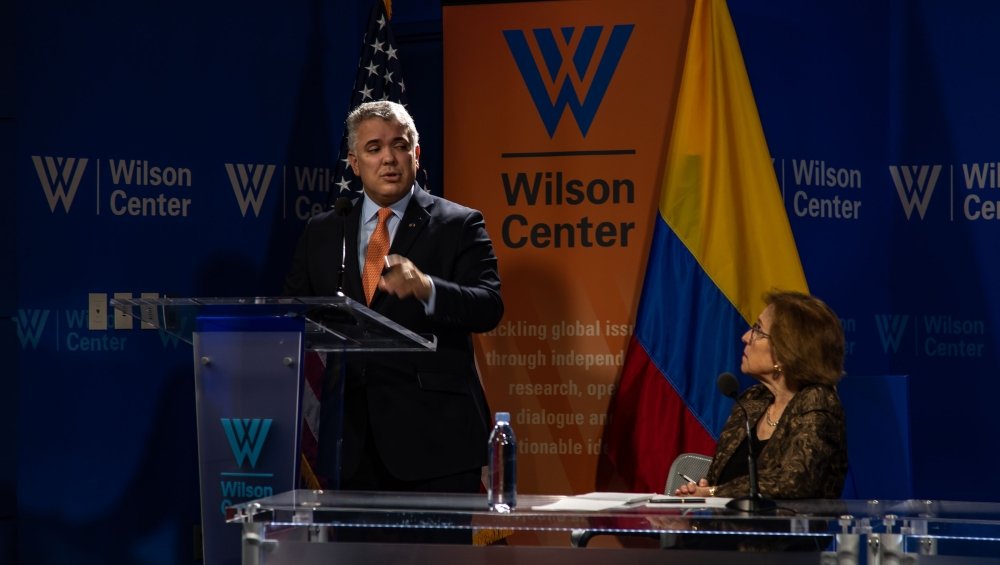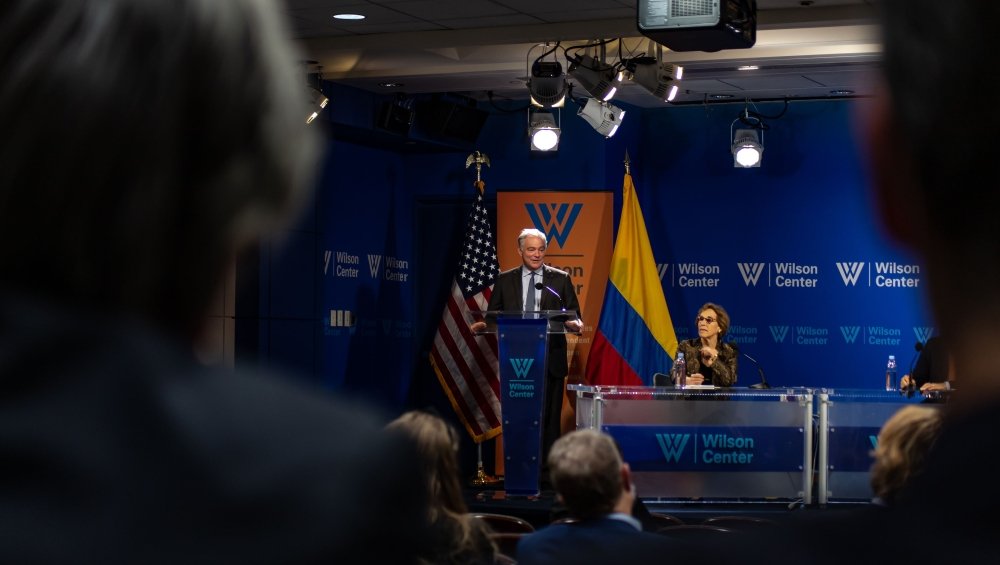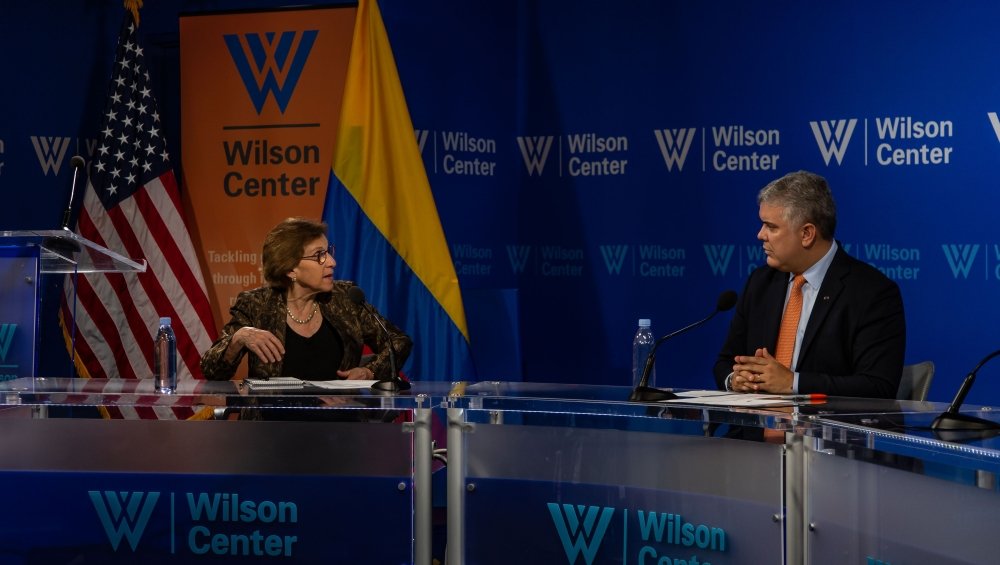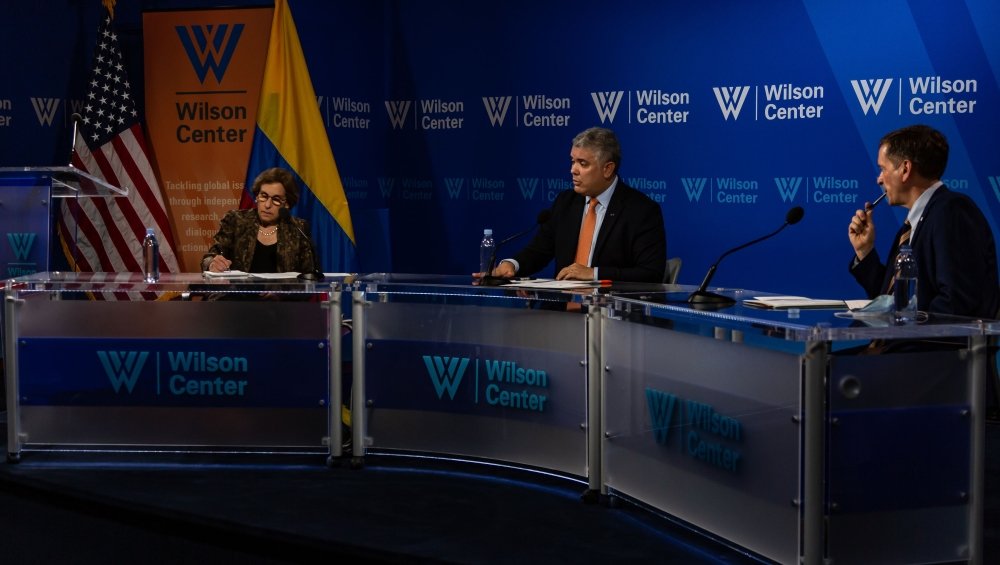Humanity in Motion and Colombia: A Conversation with President Iván Duque
Human displacement poses immense challenges to individuals, regions, and nations as conflict, violence, authoritarianism, climate, and other factors compel populations to move.
Throughout its history, Colombians have been displaced or have migrated to neighboring countries to escape the country’s own internal armed conflict. Today, Colombia hosts the largest number of Venezuelans of any country in the world— over 2 million out of a total of more than 6 million who have fled Venezuela’s authoritarian rule and economic and humanitarian collapse. In February 2021, President Ivan Duque decided to grant temporary protected status for Venezuelans. UN High Commissioner for Refugees Filippo Grandi described the bold move as “historic,” “a humanitarian gesture of an unprecedented scale.” Last month, Colombia also agreed to shelter 4,000 refugees from Afghanistan to respond to the humanitarian situation in that country.
What can the international community learn from Colombia with respect to the treatment of migrants? Is the international community doing enough to support Colombia and other Latin American countries with large populations of Venezuelans? How can the United States and Colombia deepen their collaboration in addressing the needs of displaced people?
On Monday, September 20, 2021, the Wilson Center hosted a discussion with Colombian President Iván Duque on the lessons learned from Colombia’s history with displacement as well as to discuss the current humanitarian and development challenges facing Colombia.
Key Takeaways
- The economic, political, and economic crisis in Venezuela continues to displace unseen numbers of individuals to Colombia. The administration of President Iván Duque has played an important role in protecting the human rights of displaced Venezuelans, giving them access to social services, and allowing them to join Colombia’s workforce. Earlier this year, the Duque administration created a biometric registration system to identify Venezuelans arriving to Colombia granting them temporary protected status (TPS).
- International organizations must play an active role in combatting the root causes of mass migration, including climate change. President Duque looks to spearhead an ambitious initiative with the International Monetary Fund (IMF) to work closely with emerging economies on structural investment on climate action and energy transition to accelerate the path to carbon neutrality, significantly reducing future waves of migration.
- Conflict, violence, authoritarianism, and climate are some of the main drivers for human displacement in the Americas. President Iván Duque of Colombia noted that nearshoring in the Americas would generate sustainable employment, trigger economic growth, and reduce regional human displacement.
Selected Quotes
President Iván Duque Marquez
"I have two major concerns. One is that the pandemic is not over, and many countries have to keep on spending to protect the poorest of the poor, protecting the social safety net, and trying to close the social gap. And at the same time, we all have to do investments to reach carbon neutrality by 2050. And everybody is indebted. The fiscal deficits are high. And the rating agencies are evaluating emerging markets with pandemic eyes. So, with the level of debt that you have, I just want to know who is going to pay for this because you need to have a private sector effort, but you need to have the public sector doing the same thing.
So it brings me to a proposal that I want to draw up here in the conversation and I will be talking about this in the UN General Assemblies. We need to have the IMF working with emerging economies so that every structural investment on climate action and energy transition should be considered out of the average fiscal deficit analysis. As we have done it in the past with infrastructure in some countries, this is a way so that we can all accelerate the path of carbon neutrality. Colombia is playing a very important role, and we have to think on the concepts of carbon neutral. And nature positive, because you can be carbon neutral and generate a lot of damage. So you have to be carbon neutral and nature positive.
Colombia wants to lead that conversation and protect more areas. And we're doing this in marine coastal areas. So we are using this example of making this call to the IMF because we need to be able to get more financing in order to accelerate this process. We cannot rely on donations. And we cannot rely on the private sector as the only one that has to pay the bill in order to make this transformation. So, Colombia is putting this conversation before the eyes of many and we’re going to be in Glasgow, with the high coalition committee about energy transition, so this will be put on the table with the leadership of our country."
"But there’s also another element: migration that comes out of poverty and authoritarianism. That is the tragedy in Haiti, that is the tragedy also in the southern border of the United States, where a lot of people are just wanting to cross and multiply themselves by the exchange rate. The only way that I see we can do something to prevent that is to have nearshoring and open opportunities to generate sustainable employment in the Americas. And last, but not least, something that is going to happen more frequently is the refugees from climate change—more natural disasters, more destruction, more coastal erosion—it is going to have more pressure. So, we better act boldly and rapidly to protect those areas in the Americas that are under attack by the effects of climate change. If we don’t do something bold and rapid, they are going to be chasing the southern border of the United States or other countries in Latin America to multiply themselves by the exchange rate."
“We have decided to make a very bold move based on principles, which is to embrace the 1.8 million brothers and sisters that have left Venezuela with frozen bones, lacking the access to many services, and be able to say even though we’re not a rich country, it is our moral duty to allow them to have access to opportunities in Colombia.”
“I strongly believe there are many faces to displacement and massive migration, definitely violence is one, and in a country like Colombia, if we want to put an end to that particular situation, we definitely have to look at illegal mining and we have to look at illegal drugs.”
“I promised [TPS for Venezuelans] when I was campaigning. […] This was no surprise. I promised it. […] The Colombian Constitution has one beautiful article that is article 100. That article says foreigners in Colombia will have the same rights as Colombians, obviously with the limits that will be established in the law. We also signed an international treaty in 1994 where we grant labor rights to foreigners in Colombia.”
“We need to have the IMF working with emerging economies so that every structural investment on climate action and energy transition should be considered out of the average fiscal deficit analysis. As we have done in the past with infrastructure in some countries, this is a way so that we can accelerate the path of carbon neutrality. Colombia is playing a very important role and we have to think on the concepts of carbon neutral. […] and nature positive. We are using this call to the IMF because we need to be able to get more financing in order to accelerate this process.”
Amb. Mark Green
"Earlier this year, President Duque took the historic step of granting more than a million Venezuelans Temporary Protection Status—A move the United Nations High Commissioner for Refugees called the most important humanitarian gesture in the region in decades. This enables those poor Venezuelans to work legally, to get access to health and education services. It makes them just a little bit less vulnerable to those who might exploit them or prey upon them. But TPS is not a magic wand. It does not make the migrant's challenges go away, or Colombia's challenges go away. Even though the surge of migrants from Venezuela was a crisis not of Colombia's making and even though Colombia's TPS decision has been heralded in capitals all around the world, it's also true that, except for the U.S., the needs of both these migrants and the communities that host them, have been badly underfunded by the donor community or ignored all together, a fraction for example of the funds that have been set aside for Syria and Sudan—Shameful, and wrong. I visited Cucuta several times. I've seen firsthand the suffering of those displaced and the generosity of the Colombians who are doing their best to help. It is time for the U.S. to call a new donor conference and make a renewed effort to get other nations to do their part as well."
"He inherited a peace accord built on hope, but one which in some communities, also planted some seeds of resentment. And then came COVID-19, and I agree with the senator, Colombia and her neighbors were hit especially hard. If that wasn’t enough, Colombia bore the brunt of the largest mass migration event in the history of the Americas. In the last few years, some 5.4 million Venezuelans have fled Maduro, his brutal regime—the largest number into Colombia—and many of them still there. Colombians are a generous people. And they recall those days when they were the ones on the move, and in flight. Even so, there is unmistakably a burden on public services and a loss of economic activity. There is an unmistakable impact."
“Colombia bore the run to the largest mass migration event in the history of the Americas. In the last few years, some 5.4 million Venezuelans have fled Maduro’s brutal regime, the largest number into Colombia and many of them [are] still there.”
“Colombians are generous people and they recall those days when they were on the move and in flight. Even so, there is unmistakably a burden on public services and a loss on economic activity. There is an unmistakable impact.”
“Today’s event is entitled humanity in motion not merely to reflect the waves of poor Venezuelans who have fled into Colombia but also, Mr. President, to recognize your leadership as they have fled from their homes.”
Senator Tim Kaine
"The United States does not pay enough attention to Latin America. The United States does not pay enough attention to the Caribbean. […] We often pay attention to the Americas if there is a crisis that lands on our doorstep like a migration crisis or a narcotics crisis, but if the crisis abates, we immediately turn and look elsewhere. Often our Secretaries of States act like there’s only an east-west axis on the world and not in north-south axis. But in the many challenges that we’re dealing with today, from the pandemic, to the rise of China, I think that the path forward for the United States is to build a coalition of equals, from the Yukon to Patagonia, and to begin, as we do that, with the nations with whom we already have very strong relationships, and I know President Duque is a visionary leader who would like to see that happen as well."
“The U.S.-Colombia relationship is incredibly important. It’s a relationship that has deepened over the last decades in democratic and republican administrations. […] This is a relationship that means a lot to the United States and we are very, very, proud of the accomplishments in Colombia in recent decades.”
“I think the pandemic might have had more of a challenge for Colombia than virtually any nation on the planet because it was a health emergency in Colombia just as it was in the United States, because it was an economic challenge for Colombia just as it was in the United States, but Colombia has two additional challenges that we are not grappling with to the degree and you really can’t understand the magnitude of the challenge without thinking of these. Colombia has been dealing with the pandemic and the economic devastation that it has led to, while also dealing with this sizable tsunami of refugees from Venezuela. […] In addition, if the refugee crisis was not enough, Colombia has also been in the midst of a very far-reaching effort to find peace and reinvest in parts of the nation that were disinvested for decades during the civil war.”
Event Photos
Speaker
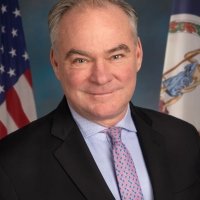
Keynote Speaker
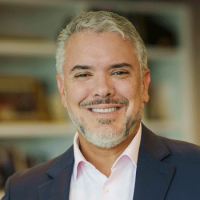
President of the Republic of Colombia (2018-2022)
Moderators


Hosted By

Latin America Program
The Wilson Center’s prestigious Latin America Program provides non-partisan expertise to a broad community of decision makers in the United States and Latin America on critical policy issues facing the Hemisphere. The Program provides insightful and actionable research for policymakers, private sector leaders, journalists, and public intellectuals in the United States and Latin America. To bridge the gap between scholarship and policy action, it fosters new inquiry, sponsors high-level public and private meetings among multiple stakeholders, and explores policy options to improve outcomes for citizens throughout the Americas. Drawing on the Wilson Center’s strength as the nation’s key non-partisan policy forum, the Program serves as a trusted source of analysis and a vital point of contact between the worlds of scholarship and action. Read more

